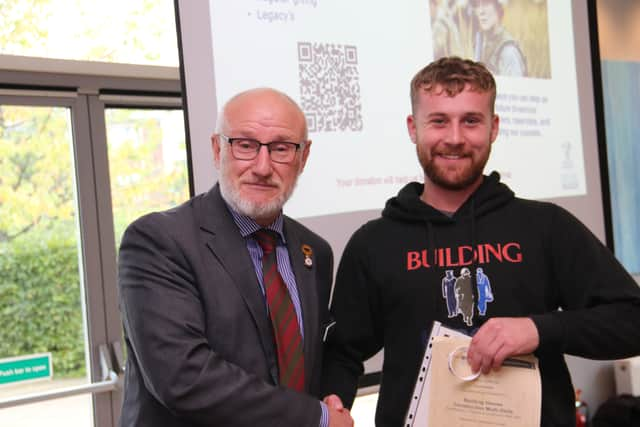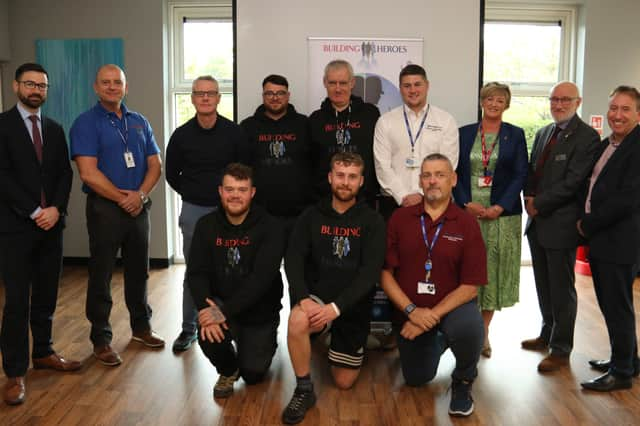The Washington soldier who is building a brighter future
and live on Freeview channel 276


A soldier who served at both the Queen's funeral and the King's coronation is looking forward to a new future, thanks to help from a forces charity's project with an education team.
David Softly, from Washington, spent three years with the Scots Guards, which saw him on point duty on the Mall for the Queen’s funeral and the King’s coronation.
Advertisement
Hide AdAdvertisement
Hide AdBased in Catterick Garrison, North Yorkshire, and Wellington Barracks, Westminster, London, he also performed a variety of ceremonial duties at the royal palaces and Windsor Castle.
He was also the first guardsman to carry a ceremonial lamp that marks the changeover of the monarchy.
Since leaving, he has been learning new skills for a future career thanks to Building Heroes, a national charity, which has teamed up with Darlington College to offer a five-week introduction to the trades, including bricklaying, plastering, tiling, joinery, decorating, some electrical work and health and safety training.
David was among the first cohort, who graduated at a special ceremony in the college’s Glasshouse restaurant.
Advertisement
Hide AdAdvertisement
Hide Ad“I enjoyed everything on the course and really liked plastering,” said David.
“I’m hoping to go self-employed. It has been great and they have been a great bunch of lads who are now friends for life. Going forward I’m sure we will help each other out on jobs.”


Darlington College’s construction curriculum manager Luke Gate said: “The project has been brilliant. The way the students have conducted themselves at college has been commendable and it has been a real pleasure to have them here. I’m sure their general demeanour has had an impact on our other students.”
Building Heroes chairman-elect Richard Tucker said they were also partnered with the Reserve Forces and Cadets Association so students were being given the chance to work on real-life construction projects.
Advertisement
Hide AdAdvertisement
Hide Ad“When you are in the Forces you are in a closed environment that is different from civilian life,” he said. “While a lot of effort goes into resettlement and many of their skills are transferable, if you are a sniper, for instance, the opportunities are more restricted.
“For some, resettlement is about re-orientating yourself while for others it is about retraining in the skills people are looking for.”
RFCA’s head of estates Mark Quince said: “It is our role to identify opportunities within the reserve and cadet force estate for the refurbishment of facilities. The students on this course will be leaving a legacy for the Army and the local community.”
Building Heroes chief executive Karen Jefford said the charity had been serving the military since 2014 and seen more than 2,900 personnel graduate.
Advertisement
Hide AdAdvertisement
Hide AdShe said some service personnel felt they had been written off and there was no quick pathway into trades shorter than around two years.
“So we created our own,” she said. “We looked at what industry needed and what we could deliver in a short space of time. Now, after five weeks, there is the potential to go straight into industry or self-employment. They have served, they have committed, they have had a pathway in the military; we wanted them to have the same in civilian life.”
She said essential parallels between construction and the military included health and safety and discipline, attention to detail and meeting tight deadlines.
There were more than 200 different jobs to consider within the sector with massive staff shortages in house building, logistics and supply chain.
Comment Guidelines
National World encourages reader discussion on our stories. User feedback, insights and back-and-forth exchanges add a rich layer of context to reporting. Please review our Community Guidelines before commenting.